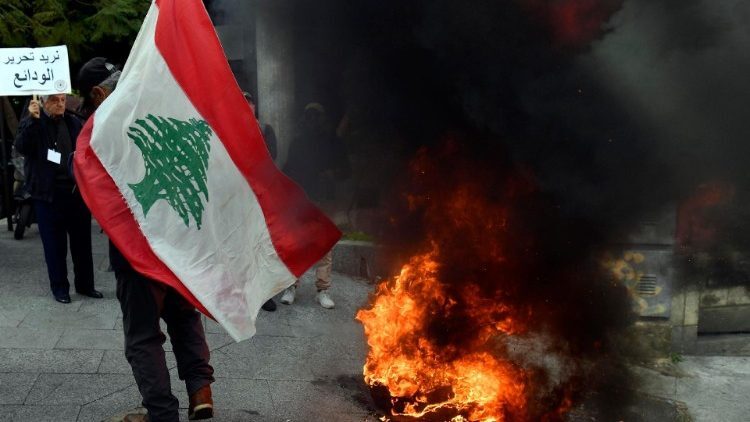“Even if people try to get used to their difficult lives and the ongoing instability, children are suffering.”
This was the sentiment expressed by Georges Hajj, president of the Hadeal Association in Lebanon, in an interview with Vatican News’ Olivier Bonnell on the ground in the country.
Hadeal, which stands for “Humanitarian Association for Development, Empowerment, Assistance, and Learning,” runs a reception center near Beirut for displaced people from the south of the country.
Helping those in need
Mr. Hajj explained that the organization was established in early September of 2023 to help those who have been left without a home or are in need.
“With the war here in south Lebanon, we have opened our location to people who left their homes and came to Beirut, who have no place to be sheltered.”
He told Vatican News Hadeal offers aid to almost 150 people, “who clearly are in great need of help.”
Instability and repeated tragedies
Asked to describe the current situation and his fears for southern Lebanon, Mr. Hajj noted that constant conflicts have kept people in the area from ever living peacefully.
Born in Rmeish on the border between Lebanon and Israel, Mr. Hajj said conflicts frequently break out between Israel, Lebanon, and the Palestinians living in Lebanon. “I couldn’t stand it,” he said, adding that it led him to leave to live in Cyprus for 20 years.
“It’s an unstable country and an unstable place to live,” he said. “Every five or ten years, there is a tragedy, and it is awful.”
Suffering and traumatized children
“People have tried to get used to their difficult lives, but you can see the children are especially suffering, and you cannot do anything,” he lamented.
He said the Hadeal center has tried to help as much as possible, but noted that the challenges for little ones and young people remain unsurmountable.
“If the door closes forcefully,” Mr. Hajj recalled, “the children jump, scream, and shout, because they think that it’s a bombardment because they have suffered from this situation.”
“It’s pity for a child to suffer from the noise of bombardments,” he said, calling it “a real tragedy” for the people who live there.
Lebanon is suffering
Given the international media’s focus on the humanitarian crisis in Gaza, Mr. Hajj was asked whether he feels more attention needs to be placed on his region.
Mr. Hajj responded by explaining that while Lebanese people feel “very sorry about the people dying” and “do not like what is happening in Gaza,” they “have nothing to do with the Gaza conflict.”
“We are suffering,” he reiterated. “Every time they have a conflict in Palestine or in Israel, we are suffering as well.”
By Olivier Bonnell and Deborah Castellano Lubov






